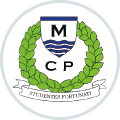Internet Safety Advice
Keeping your child safe on the internet
At Maylandsea Primary School we place great emphasis on e-safety and keeping our children safe when they are on-line. As well as being most obviously featured in our computing curriculum, it forms part of every interaction we have with technology. Our curriculum includes regular sessions and assemblies through which we teach children the necessary tools to become discerning consumers of digital content.
We teach them to use a wide range of technology safely, respectfully and responsibly. They are taught how to behave and also how to protect themselves on line. We help them understand that their digital activity forms a footprint that follows them throughout their lives and is searchable by others. Children are taught to recognise unacceptable behaviour and the consequences of these as well as how to report any concerns that they have.
In school, we try to keep up to date with the rapid pace of change in this digital world, and it isn’t easy. There is also a need for awareness outside of school where the access to technology is potentially less structured or filtered. We know that it can be very difficult for parents to be informed of the latest sites and issues that may affect their child when working on-line. With this in mind, through regular updates, digital parenting publications, bulletins and this e-safety page, we hope to point parents to useful sites and important information which will help them keep informed and more importantly understand the risks to children on-line.
Our tops e-safety tips for parents at Maylandsea
- Set boundaries in the on line world just as you would in the real world.
- Be involved in your child’s online life. If they love an on-line game, or site, explore it with them so you can chat about it together and, most importantly, understand how it works.
- Keep up-to-date with your child’s development online. The Digital Parenting magazine we send out is really helpful and suggests what on-line activity is age appropriate.
- Consider the use of parental controls on devices that link to the internet, such as the TV, laptops, computers, games consoles and mobile phones.
- Emphasise that not everyone is who they say they are.
- Know what connects to the internet in your house and how. You may not be aware that games consoles etc. have on-line capability.
- Watch Thinkuknow films to learn more.
- Get the technology out of the bedroom! This will also help promote a good nights sleep.
- PEGI ratings advise which games are appropriate for which age: they protect children from extreme scenes in many cases, so TAKE NOTICE of them.
Of course, if you have any concerns about the safety of any pupils at the school, you can alert us by contacting the school and asking for one of the designated child protection officers.
